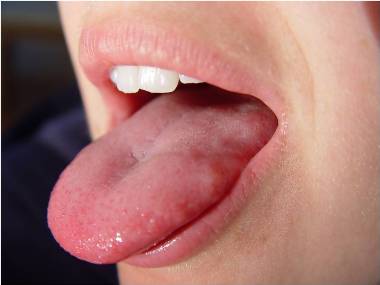Overview

Mouth cancer is known as oral cancer.
It can affect areas in and around the mouth, including the:
- lips
- tongue
- inside of the cheek
- floor or roof of the mouth
- gums
If mouth cancer is diagnosed early, a complete cure is possible in 9 in 10 cases.
Symptoms
The most common symptoms include:
- painful mouth ulcers that don't heal
- lumps in the mouth or the neck
- loose teeth, or sockets that do not heal after an extraction
- numbness or an odd feeling on the lip or tongue
- white or red patches in the mouth or tongue
- changes in speech
Other symptoms may include:
- pain or difficulty when swallowing
- unexplained weight loss
- difficulty moving your jaw
See a GP or dentist if these symptoms do not get better within 3 weeks.
Causes
The main risk factors for cancer include:
- smoking or using tobacco in other ways (such as chewing or smokeless tobacco)
- alcohol
- infection with the human papilloma virus (HPV)
Other risk factors include:
- chewing betel nuts (with or without added tobacco)
- an unhealthy diet
- poor oral hygiene
Prevention
Prevent mouth cancer, or stop it from coming back by:
- not smoking or using tobacco
- not drinking more than the recommended limits for alcohol
- eating a healthy, balanced diet that includes fresh vegetables, citrus fruits, olive oil and fish
Self-check
Mouth cancer often does not cause any noticeable symptoms in the early stages.
It’s recommended to do a self-check once a month. It takes less than 1 minute.
The Oral Health Foundation has a useful guide on how to check yourself or a family member for mouth cancer.
Dental check-ups
It's important to have regular dental check-ups. Your dentist may be able to detect mouth cancer during an examination.
Find a dentist near you
Human papilloma virus (HPV)
The human papilloma virus (HPV) is a family of viruses. They can affect the skin and linings inside the body.
You can get a HPV infection through sexual contact with a person who's already infected. You do not have to have penetrative sex, just skin-to-skin contact.
There's evidence that in rare cases, certain types of HPV can trigger mouth cancer.
Who's affected
Mouth cancer is the 6th most common cancer.
Around 8,300 people are diagnosed each year in the UK.
More than 2 in 3 cases of mouth cancer develop in adults over the age of 55. Only 1 in 8 (12.5%) happen in people younger than 50.
Men are more likely to get mouth cancer than women.
Mouth cancer can develop in younger adults. HPV infection is linked with mouth cancers in younger people.
Diagnosis
If you have symptoms of mouth cancer, see a GP or dentist. They will do a examination and ask about symptoms.
Early detection will boost your chance of survival. Report any symptoms to your dentist or doctor if they do not get better after 3 weeks.
If mouth cancer is suspected, you'll be referred to hospital for further tests.
Treatment
There are 3 main treatment options for mouth cancer:
- surgery to remove the cancerous cells
- radiotherapy
- chemotherapy
These treatments are often used in combination. For example, surgery may be followed by a course of radiotherapy. Advances in surgery, radiotherapy and chemotherapy have resulted in much improved cure rates.
Overall, around 6 in 10 people with mouth cancer will live for at least 5 years after their diagnosis. Many will live much longer without the cancer returning.
For more information on mouth cancer, see the
Living with
Support is available from:
Caring for someone with mouth cancer
If you're caring for someone with mouth cancer, it's important to look after yourself and get as much help as possible. You may need a break from caring if you're feeling down and finding it difficult to cope.
Call the Carers Direct helpline on 0300 123 1053 (Monday to Friday, 9am to 8pm and weekends, 11am to 4pm).
The information on this page has been adapted by NHS Wales from original content supplied by  NHS website nhs.uk
NHS website nhs.uk
Last Updated:
19/03/2024 11:31:08